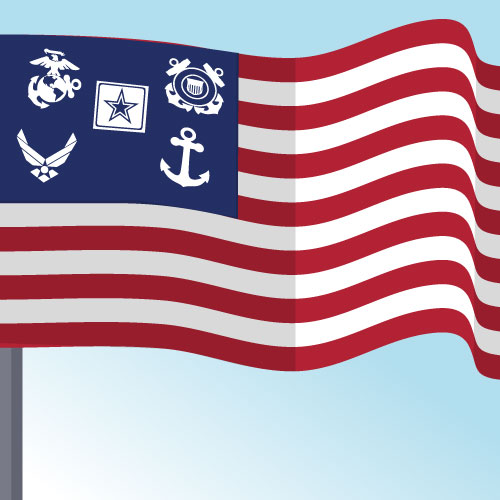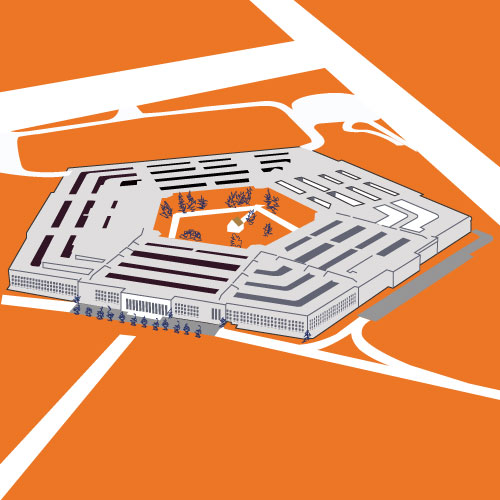Military Response
End of Combat
On December 28th, 2014, President Obama announced the end of combat in Afghanistan. Beginning in January 2015, the U.S. began Operation Freedom Sentinel, which would aid in assisting, giving advice, and teaching the Afghan people how to build and maintain a central government.
To Learn More: cnn.com/2014/12/28/politics
stateoig.gov/system/files
Source: CNN and Department of State OIG
Obama’s First Year at War
2009 was one of the toughest years for America in Afghanistan. President Obama took extensive measures to help the Afghanistan government gain back control and keep neutral ground in the country.
To Learn More: pbs.org/wgbh/frontline
pbs.org/wgbh/pages/frontline
npr.org/templates/story
Source: PBS and NPR
Largest NATO Attack
On July 31, 2006, NATO began their largest ground operation in 57 years after several Canadian soldiers were killed in a terrorist attack.
To Learn More: nato.int/docu/update/2006
Source: NATO
Operation Mountain Thrust
From May 2006 to July 2006, NATO led Operation Mountain Thrust, which went to areas of Afghanistan that didn’t have a strong government presence in order to eliminate any threats to the people.
To Learn More: youtube.com/watch
Source: Youtube.com
Reforming of the Taliban
Several years after the collapse of the Taliban, they began to reform in the Pashtun region of Afghanistan. They returned to their violent attacks, making 2005 the deadliest year for U.S. forces and their allies.
To Learn More: hrw.org/world-report/2006
Source: Human Rights Watch
Taliban Loses Kandahar
On December 7th, 2001, the birthplace of the Taliban, Kandahar, is seized by American forces while Taliban leader, Mullah Mohammed Omar, escaped to an unknown location. President Karzai tells the world that the Taliban is finished and there is no longer a need for military intervention.
To Learn More: cnn.com/2001/WORLD
Source: CNN
United States Begins Attack
On October 7th, 2001, the United States and British air forces began bombing terrorist locations in Kabul, Kandahar, Jalalabad, Kunduz, and Mazar-e-Sharif. This was the beginning of Operation Enduring Freedom, the official name for the War on Terror.
To Learn More: cnn.com/2013/10/28/world
history.com/this-day-in-history
Source: cnn.com, history.com
Hamid Karzai Interim Leader
On December 22, 2001, Hamid Karzai was sworn in as the leader of the new government in Afghanistan. Karzai spoke out against terrorism and promisesd to promote peace within the country.
To Learn More: cnn.com/2001/WORLD/asiapcf
Source: Cnn.com, theglobeandmail.com
ISAF
On August 11, 2003, the NATO lead International Security Assistance Force (ISAF) began working with the Afghan National Security Forces, the Afghan National Army, and the Afghan National Police to help rebuild sustainable and independent security for the country.
To Learn More: nato.int/cps/en/natohq
Source: NATO
Taliban Flee Kabul
After only several weeks of attacks on Afghanistan’s capital, Kabul, the Taliban troops fled the city and headed toward Kandahar. Northern Alliance soldiers then entered the city to reclaim the capital.
To Learn More:
cnn.com/2001/US
theguardian.com/world
cnn.com/2001/US/11/13
theguardian.com/world
Source: CNN, The Guardian
The First Year of the War
These images show what the first year of the war in Afghanistan looked like from the perspectives of both the United States and Afghanistan.
To Learn More: buzzfeednews.com/war-in-afghanistan
Source: Buzzfeed News
Timeline 2001-2008
Learn about the most important events of the 2001-2008 war against Afghanistan with this in-depth timeline.
To Learn More: pbs.org/now/shows
Source: PBS
Looking Back on War
In this article, the national climate after the events of 9/11 is explored, along with how we have changed as a nation since the start of the war with Afghanistan.
To Learn More: abcnews.go.com/International
Source: ABC News
Battle of Tora Bora
Osama bin Laden led hundreds of his followers to the Tora Bora region of Afghanistan, where one of the most important battles of the War on Terror took place. The U.S. Airforce launched an aerial attack while Northern Alliance troops stood ready on the ground.
To Learn More: britannica.com/event/Battle-of-Tora-Bora
pri.org/stories/2015-12-22
Source: Britannica, The World
Operation Anaconda
Operation Anaconda was a large-scale battle in the War on Terror. Beginning in March 2002, CIA paramilitary officers worked with allies to destroy al-Qaeda and Taliban forces in Afghanistan.
To Learn More: armyupress.army.mil/Journals/Military
Source:Army University Press
F-16 Pilots Prepared
Two National Guard pilots took to the skies in unarmed F-16s after the attacks on 9/11, ready to take down any other hijacked planes if necessary. Their willingness to sacrifice themselves to save others was the ultimate act of heroism.
To Learn More: businessinsider.com/7-incredible-stories
Source: Business Inside
U.S. Marines Don Their Uniforms
Two former marines, Jason Thomas and Dave Karnes, put on their uniforms and traveled to New York City immediately after hearing about the 9/11 attacks. They not only helped to clear rubble, but they also helped find two officers that had been buried.
To Learn More: businessinsider.com/7-incredible-stories
Source: Business Insider
People of Afghanistan
This video explores the people of Afghanistan’s response to the 9/11 terrorist attacks, as well as how they felt about the U.S. military presence in their country. It shows that many people in Afghanistan openly condemned the actions of al-Qaeda.
To Learn More: youtube.com/watch?
Source: PBS NewsHour
Tony Blair’s Speech
Britsh Prime Minister Tony Blair vows to stand “shoulder to shoulder” with the American people, assuring President Bush that he will have the United Kingdom’s full support in the battle against terrorism.
To Learn More: youtube.com/watch?v=zz72vu_Kjw8
Source: AP Archive
War on Terror
President George W. Bush addresses Congress, naming al-Qaeda as the group responsible for the attacks on 9/11, as well as outlining the support they received from the Taliban in Afghanistan. In order to ensure the future safety of America and its citizens, he calls for Congress to respond directly to the terrorist threat.
To Learn More: youtube.com/watch?v=TYnx-c8pF34
Source: AP Archive
Search 9/11 Lessons
Museum Galleries
Museum Lessons

Military Response
Learn about the military response to 9/11 and the difficulty of regime change.

New York City, NY
Learn about 9/11 in NYC and create your own I HEART NY design to honor the city.









